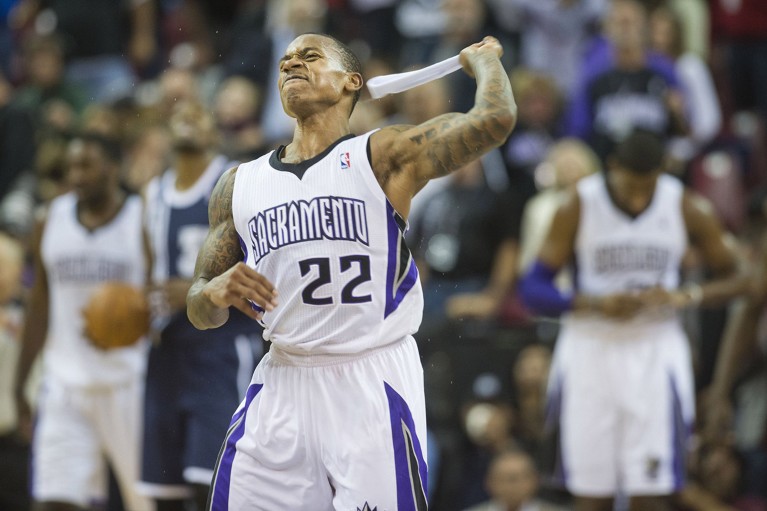
Basketballer Isaiah Thomas reacts after lacking an important shot. Credit score: Hector Amezcua/Sacramento Bee/Tribune Information Service through Getty
Have you ever ever been in a high-stakes state of affairs by which you wanted to carry out however fully bombed? You’re not alone. Experiments in monkeys reveal that ‘choking’ beneath strain is linked to a drop in exercise within the neurons that put together for motion1.
“You see it throughout the board, you see it in sports activities, in all types of various sports activities and out of doors of sports activities as properly.” says Steven Chase, a neuroscientist at Carnegie Mellon College in Pittsburgh, Pennsylvania. Chase and his colleagues investigated what occurs within the mind that causes efficiency to plummet, and printed their findings in Neuron on 12 September.
Choking beneath strain is just not distinctive to people. In the identical manner {that a} tennis participant would possibly miss a match-winning shot, monkeys may underperform in high-reward conditions.
Successful jackpot
The workforce arrange a pc activity by which rhesus monkeys acquired a reward after rapidly and precisely transferring a cursor over a goal. Every trial gave the monkeys cues as as to whether the reward could be small, medium-sized, giant or ‘jackpot’. Jackpot rewards had been uncommon and unusually massive, making a high-stakes, high-reward state of affairs.
Utilizing a tiny, electrode-covered chip implanted into the monkeys’ brains, the workforce watched how neuronal exercise modified between reward situations. The chip was located on the motor cortex, an space of the frontal lobe that controls motion.
The researchers discovered that, in jackpot situations, the exercise of neurons related to motor preparation decreased. Motor preparation is the mind’s manner of constructing calculations about find out how to full a motion — just like lining up an arrow on a goal earlier than unleashing it. The drop in motor preparation meant that the monkey’s brains had been underprepared, and they also underperformed.
The outcomes “assist us perceive how reward-outcome-mediated behaviour is just not linear”, says Bita Moghaddam, a behavioural neuroscientist at Oregon Well being & Science College in Portland.
To a sure extent, “you simply do not carry out higher because the reward will increase”, Moghaddam says. It could even be fascinating to see how different mind areas reply in jackpot-reward conditions, she provides, as a result of a number of areas could possibly be concerned.
Peak preparedness
The researchers then investigated why motor preparation decreases in high-stakes situations. An evaluation of how the motivation of rewards and neural preparation was associated to monkeys’ efficiency instructed that, as the scale of a reward will increase, neural exercise reaches a degree of peak preparedness. For even bigger rewards, preparedness begins to wane, pushing the mind out of its candy spot for efficiency. The researchers name this the neural-bias speculation.
The workforce can also be fascinated with whether or not choking beneath strain will be averted, Chase says. For instance, he wonders whether or not getting suggestions on one’s mind exercise may assist to optimize efficiency. However first, the workforce might want to examine the phenomenon extra in people, he says.


